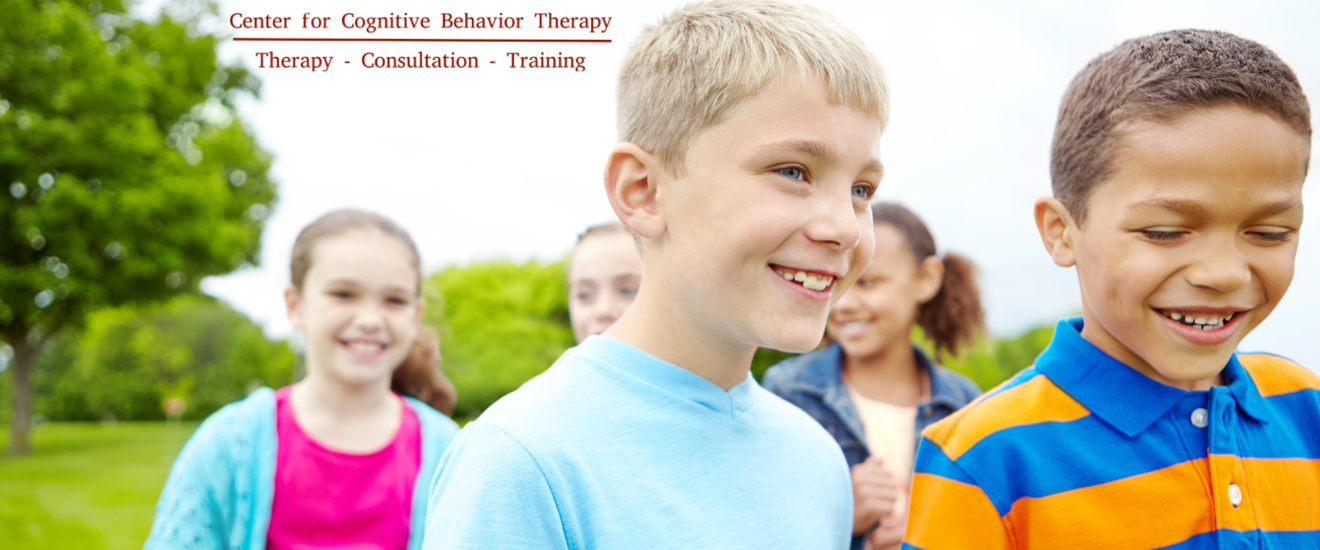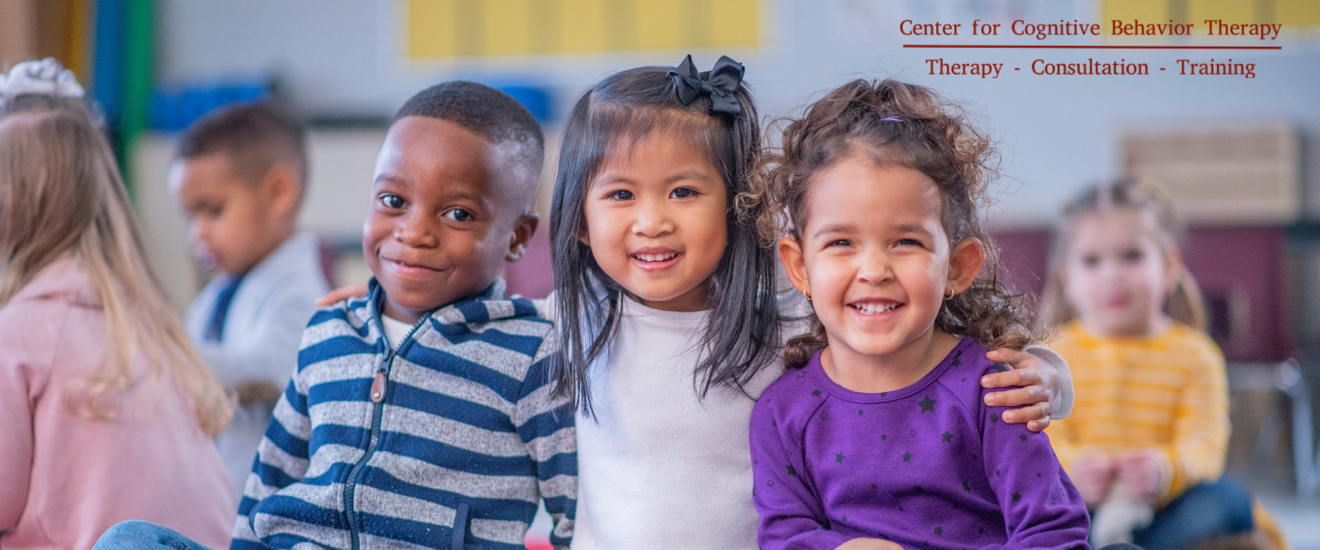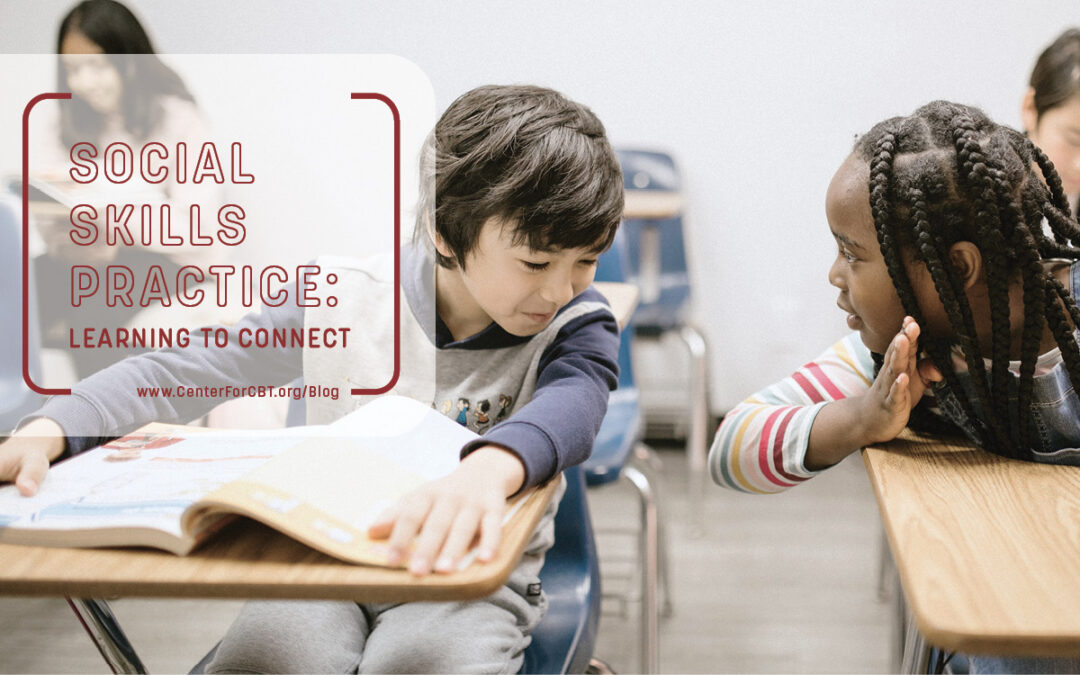The ability to make friendships is an important part of childhood. Successful peer relationships are important for social and familial functioning, academic performance, children’s social development, and success later in life. Children with adaptive social skills will be better equipped to successfully navigate the complex and dynamic world in which we live. Social skills, however, do not always come naturally, and some children may benefit from social skills training. Social skills interventions aim to teach specific skills, such as initiating a conversation, social problem solving, turn taking, and emotional awareness. Practicing behavioral and social learning techniques can help children gain more confidence and independence in social settings.
Just as some students may need extra tutoring support for a math lesson, children with social communication challenges require direct instruction on social skills development. But unlike teaching math, where two plus two always equals four, social skills instruction is more challenging due to the dynamic nature of social interactions. While three are various curriculum and programs that teach social skills, the common thread among nearly all of them is a teaching process that includes the following 3 components:
- Discuss the steps that will be used to implement a skill, like introducing yourself to a new person.
- Demonstrate the skill for the child. This might look like waving hello, sharing your name, and asking the other person their name.
- Do the skill by roleplaying with the child, giving them the opportunity to practice the steps, and providing feedback.

Therapy for Social Skills
Successful social skills training requires a comprehensive approach that seeks to increase a child’s motivation and help them generalize the skills they learn to apply them in the real world. This can be done in group therapy, individual therapy, or using a combined approach. Communication with parents and consultation with teachers is also an important part of the process. This ensures that treatment recommendations can be tailored to each child’s unique needs and implemented with consistency across different settings, like home and school.
When run by a licensed psychologist who is experienced in social skills instruction, social skills groups are an effective intervention because they provide a forum for children to learn and practice specific social-behavioral skills with their peers. A good, evidence-based group will target specific skills each week and teach lessons that build upon each other. These should include discussions, skills demonstrations, and role plays during which feedback is provided. Alternatively, skills can be taught in individual therapy. This option is helpful for families who may have a scheduling conflict during a group. In the case of children who may not yet possess the language skills and/or behavioral abilities appropriate for a group, individual sessions may be more beneficial.
Regardless of which approach a family chooses to support their child’s social skills development, it is critical that the therapist engages with parents and school personnel as part of the process. This helps children generalize the social skills they are learning to their everyday environment. The therapist will communicate with others involved in the child’s care to ensure that interventions are applied in the home and school, as well as in therapy. This can be done through collateral calls, and with written material such as recommended readings and take-home assignments that the child can complete with their caregivers. Throughout treatment, the therapist will share feedback about a child’s progress with parents and, with permission, school personnel.

Generalizing Social Skills to the Real World
By taking a collaborative approach to help a child learn and develop social skills over the course of several weeks, a skilled clinician can more effectively identify a child’s social strengths and needs. They can also work to develop and implement behavioral strategies that promote the use of desired social skills. These strategies can be reinforced with ongoing coaching and feedback from caregivers. A useful approach that parents and school personnel can utilize to foster social skills development and maintain its use is the 4 Ps:
- Practice the new social skill with the child.
- Praise the child for the newly learned social skill.
- Point out to the child when their peers are using an appropriate social skill.
- Prompt the child to engage in the specific skill when appropriate to do so.
Social skills deficits typically occur across multiple settings and situations. Difficulties with social interaction affect nearly every aspect of a child’s life and may result in lifelong challenges when not effectively addressed in childhood. Teaching social skills and promoting children’s social development requires systematic, comprehensive intervention and collaboration between the treating clinician, parents, and school personnel. Conducting social skills training in therapy, and practicing in their daily lives, can help children learn and apply pro-social behaviors. By addressing skill deficits, performance deficits, and generalization difficulties, social skills therapy can help children develop critical skills that enable them to navigate the social world with more ease and success.


